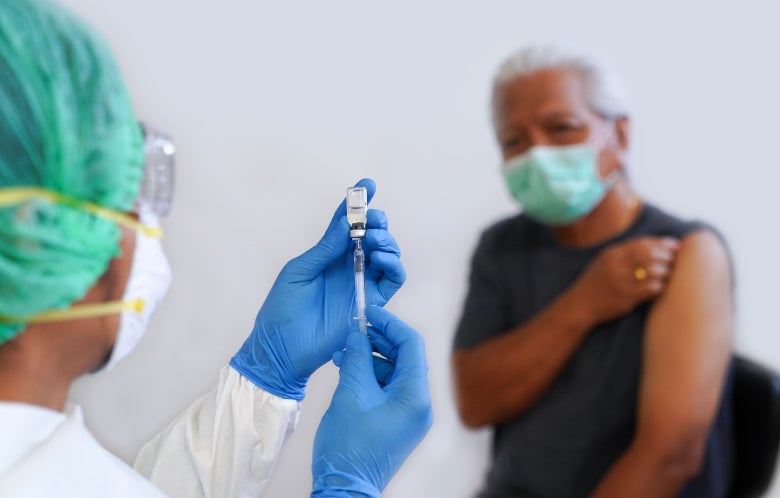Post-acute COVID-19 Syndrome, commonly called “long COVID”, manifests as a myriad of symptoms ranging from fatigue and insomnia to sensory, memory, and mobility impairments lasting more than three months after an acute COVID-19 illness. Incidence varies considerably and is reported to be as high as 74 percent. Clinicians currently have few options for effective treatment. Several reports raised the possibility that COVID vaccines may improve symptoms of long COVID. Recently, investigators in the United Kingdom decided to study that very question.
A prospective cohort study was conducted using data from the COVID-19 Infection Survey, initiated in April 2020. This study included survey participants 18 to 69 years old with a prior positive swab or serologic test and receipt of at least one COVID-19 vaccine after the positive test result. Participants were followed for a median 141 days, with COVID testing weekly for four weeks, then monthly thereafter. Vaccine records were self-reported and confirmed using vaccine registry data in England. In February 2021, investigators added questions related to long COVID symptoms which were reported by 6,729 (23.7%) participants.
This study used individual level interrupted time series analysis, essentially a before-and-after analysis using each participant as their own control. Results demonstrated no reduction in long COVID symptoms over time before vaccination. A reduction in long COVID symptoms was demonstrated after first and second doses of vaccine (adjusted odds ratio [aOR] 0.87, 95% CI 0.81-0.93 and aOR 0.91, 95% CI 0.84-0.98, respectively). In multiple follow-up analyses, there was no difference in these findings by patient demographics, disease severity, type of vaccine received or other covariates.
Interrupted time series studies have become increasingly popular when studying public health interventions, with the hope that they limit potential confounding. But do they? In this case, long COVID symptoms may resolve spontaneously, so without a control group, there is no way to tell if the improvements seen were simply from observing the participants for a longer period of time or due to an effect of the vaccine. Additional limitations of these data include the potential for healthy volunteer bias and participant-reported diagnosis of long COVID. Given the lack of demonstrated harms of vaccines and potential for improving long COVID symptoms, clinicians should continue to offer vaccination to patients with a prior COVID-19 infection and vague, ongoing symptoms.
For more information, see the topic COVID-19 (Novel Coronavirus) in DynaMed.



